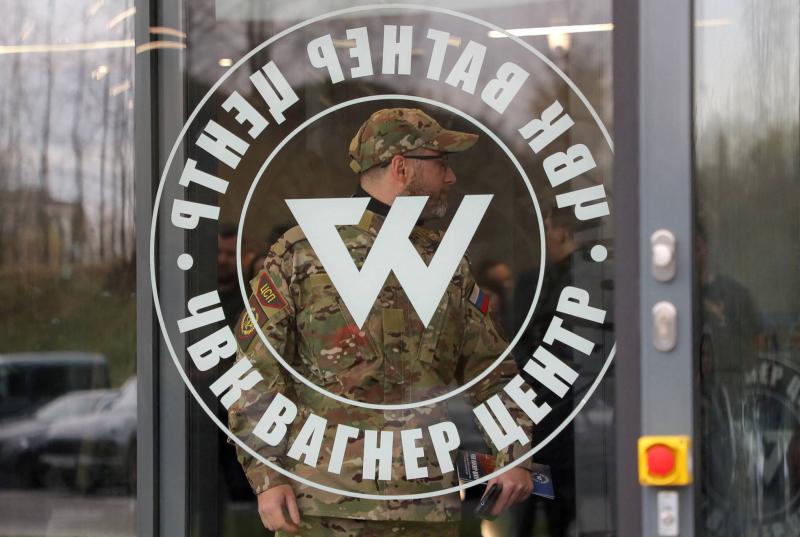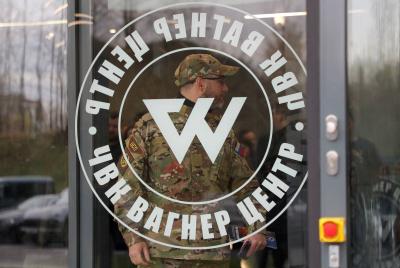After armed assailants killed nine Chinese nationals at a gold mine in the Central African Republic in March, a video circulated online claiming that France secretly ordered the attack and planned to discredit the Russian private military group Wagner. In the video, a rebel in the Central African Republic stated, "The French want to drive Wagner out of Africa." This video raised alarms in a media monitoring unit at the French Ministry of Foreign Affairs, established last year as part of a broader diplomatic strategy to revive relations in the former French colonies in Africa after years of declining influence.
The ministry reported that the unit quickly traced the video back to a network of accounts on Facebook and Twitter linked to Russian disinformation, including Wagner, a group close to the Kremlin that has forces in Ukraine and has fought for several governments in Africa. Two diplomats from the French foreign ministry stated that the video exemplifies a growing Russian influence campaign that amplifies criticism of France and portrays Moscow as an ally in Central and West Africa. The ministry denied any French involvement in the attack on the mine.
Officials indicated that Russian propaganda has found fertile ground in Africa due to longstanding complaints about France's military interventions and diplomatic insensitivity over decades. More than ten French officials discussed France's increasingly urgent efforts to counter Moscow's influence, which Paris believes undermines long-term diplomatic efforts aimed at overcoming its colonial past. A team of 20 diplomats, former journalists, data analysts, and media monitors operates from the French foreign ministry in Paris. In coordination with an agency that monitors and protects against foreign digital interference, the unit has tracked approximately 100 Russian or Wagner-linked accounts that post anti-France content, according to two diplomats involved in the initiative who requested anonymity to speak freely.
French Foreign Minister Catherine Colonna stated in parliament this month that anti-French sentiments in Africa could be attributed to reasons including "hostile actors, particularly from Russia." Russia and Wagner have a well-documented history of media manipulation and disinformation, acknowledged by Yevgeny Prigozhin, the founder of Wagner. The European Union imposed sanctions on Wagner in February due to allegations of human rights violations and spreading disinformation, including in Africa.
However, Moscow cannot be solely blamed for the anti-French sentiment in Africa; French military campaigns have resulted in civilian casualties, and many social media accounts reflect genuine concerns about France's substantial role in African affairs. Addressing the image of "neo-colonialism" is part of the strategy. President Emmanuel Macron told Reuters in Kinshasa at the end of a four-day tour of Central Africa in March that some criticisms are "valid," pointing to accusations that France continues to adopt colonial attitudes even after West African countries gained independence. He added, "We are no longer there to replace a coup or a failed political process."
In May, Russian Foreign Ministry spokesperson Maria Zakharova claimed that France had intervened in the internal affairs of African nations for decades, toppling leaders it opposed and building "a new colonial system of influence." In contrast, she stated that Russia does not interfere in the affairs of other countries.
The new media monitoring unit differs from previous French efforts, which countered Wagner-linked networks online through their own fake accounts. Those efforts were revealed by Meta, the parent company of Facebook, in 2020. The diplomats indicated that the Ministry of Foreign Affairs' unit does not create or promote false news.
The media monitoring unit emerged in July, the same month France withdrew thousands of troops from Mali, its former West African colony. This was followed by a similar withdrawal from neighboring Burkina Faso earlier this year, steps attributed to military coups and the presence of Wagner fighters in the region. The military withdrawal is seen as a significant failure for Macron and has strengthened Moscow's position at a time when the West is seeking to impose restrictions on Russia due to its invasion of Ukraine. It also represented a setback for Western efforts to counter militants in the Sahel region of Africa.
According to diplomats and four other sources, anti-French content on social media continued following the withdrawals, via the distribution of numerous videos, animations, and pro-Russian cartoons, often presenting distorted or inaccurate narratives. This trend coincided with the expulsion of new military governments in Mali and Burkina Faso from French news networks, establishing closer ties with Russia Today and other Russian state media expelled from Europe after the invasion of Ukraine. The war has reignited diplomatic disputes between the West and Russia, which have existed in Africa since the Cold War.
The French unit claims to have identified 100 networks linked to Russia or Wagner; the video that spread after the killing of the Chinese citizens is one of about 50 videos that have circulated since November, keeping the unit busy in identifying these materials' sources, verifying them, and responding when necessary.
To highlight the magnitude of the problem, France announced on June 13 that it had uncovered a massive disinformation campaign linked to Russia targeting the foreign ministry and French media, which involved a number of accounts and entities detected by French monitoring operations in Africa. Russia has not publicly responded to the accusations.
The new team shares information with French embassies, other French ministries, intelligence agencies, and the media regulatory body. The unit advises against direct responses in many cases, including in the case of the video related to the Central African Republic, especially when it appears the content is not attracting much attention.
In other instances, the unit identifies the most interactive users and shares this information with social media companies like Facebook and Twitter and reports trolls and fake accounts to them. These efforts sometimes help the French state to respond. When a video titled "French Humiliation" circulated in December 2022 showing a man pretending to be a French envoy being expelled from the Democratic Republic of Congo, the unit prepared a detailed response to prove that the man was not a French diplomat. Days later, the French embassy in Kinshasa issued a response in a series of statements to local and foreign media. Anne-Sophie Avé, then French ambassador for public diplomacy in Africa, tweeted that the video was "fake news. The man in the video is not our ambassador in the Democratic Republic of the Congo."
Two French officials indicated that the Central African Republic video bore the fingerprints of activities linked to the Lakhta Project, a Russian influence operation funded by Wagner's founder Yevgeny Prigozhin. Prigozhin stated in February that he founded the Internet Research Agency, a troll training center linked to the Lakhta project, to counter what he termed anti-Russia propaganda from the West. The officials noted that the video alleging France's involvement in the killing of Chinese citizens first appeared on a Facebook page named Sango T.P. Africa. They pointed out that this page had previously been identified by the agency monitoring and protecting against foreign digital interference as a disinformation channel associated with the Lakhta project targeting France. Subsequently, military analysts shared the video on Twitter, and officials described these analysts as agents of the Lakhta project, stating that they often disseminate pro-Wagner content.
Leaked U.S. military intelligence documents earlier this year indicated that an employee of Prigozhin, also working with Central African Republic President Faustin-Archange Touadéra, suggested in February launching an anti-West campaign in the country where Russia currently has nearly two thousand military trainers deployed.
Meta reports on actions taken against groups showing signs of government interference. This year, it deleted such groups in Burkina Faso and Togo. In 2020, it suspended accounts of groups linked to individuals associated with the previous activities of the Internet Research Agency ahead of elections in the Central African Republic, according to a statement on Meta's website.
France claims it is restructuring its military presence in the region to adopt a more collaborative approach since completing its withdrawal from Mali in 2022 and from Burkina Faso in 2023, as part of its new diplomatic efforts. It is also implementing an action plan covering economic, cultural, and social areas promoted by Macron when he came to power in 2017, explicitly discussing the scale of support and making Russian assistance appear minimal.
However, seven analysts and diplomats stated that the Ministry of Foreign Affairs unit and the broader strategy will face a daunting struggle to convince people in Africa that France has changed. Michael Shurkin, director of global programs at 14 North Strategies, a consulting firm focused on Africa, said, "They have essentially lost the communications war" due to the sheer amount of skepticism and distrust regarding France's intentions.
The persistent sentiment that France supports its preferred candidates continues to concern some politicians. Jean Gaspar Ntoutoume Abé, vice president of the opposition National Union party in Gabon, stated, "I'm not saying that Macron is arrogant towards Africa, but there is a lot of folly." Foreign ministry officials noted that the elections in Senegal in 2024 and in Ivory Coast in 2025 will test the effectiveness of the new initiatives, with an expected increase in anti-France media content. A French official involved in the Africa strategy explained, "If people disagree, they should be able to express themselves." He added, "We need to distinguish between public debate and manipulation."




